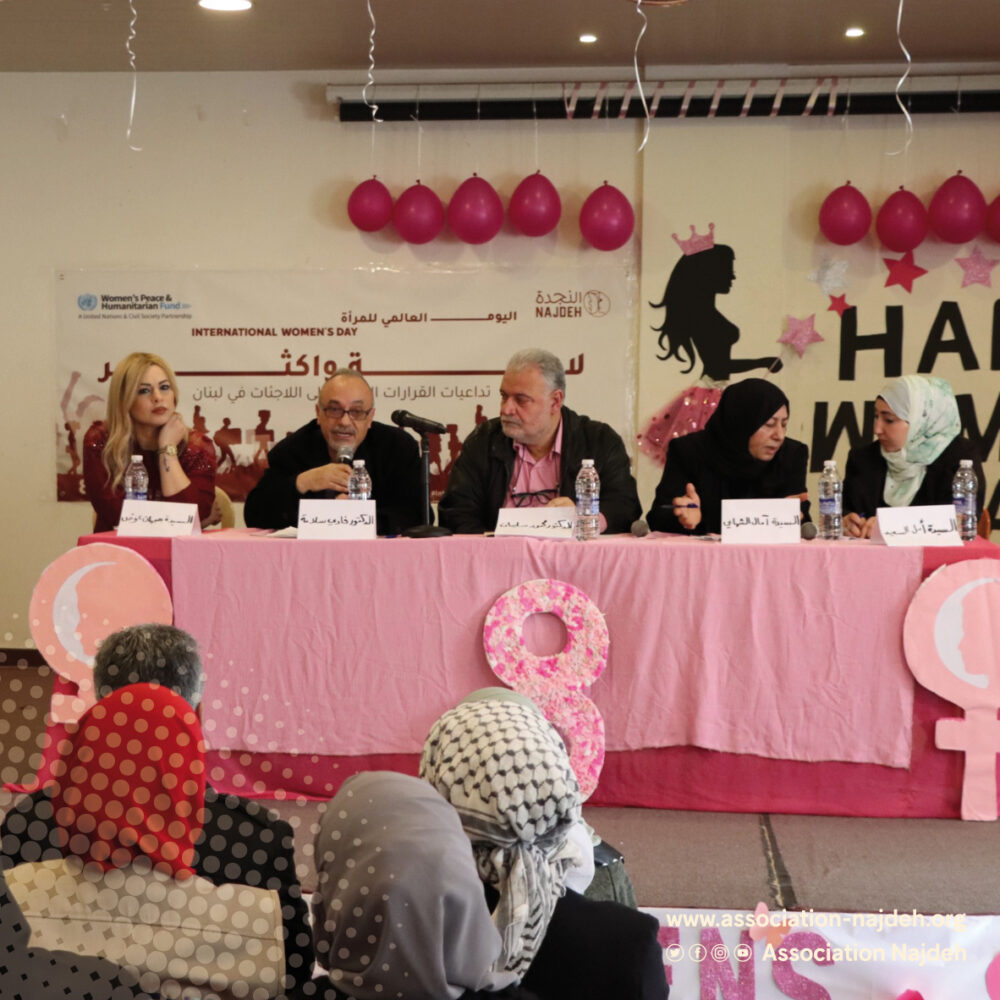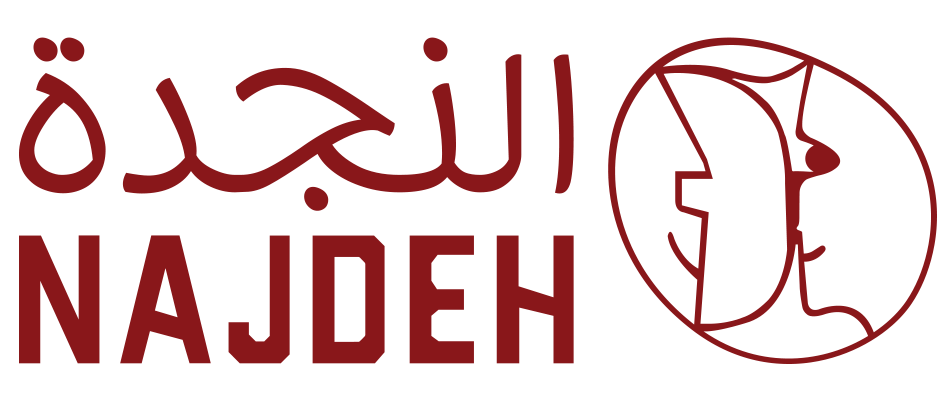
More than a Refugee – Ain al-Hilweh Camp
11/03/2024
Ain al-Hilweh, on the occasion of International Women’s Day, Association Najdeh organised a conference and open dialogue titled “Refugee and More… The Impact of International Decisions on Refugee Women in Lebanon.” The event was attended by representatives of popular committees and local organisations in the Tyre area, representatives of Palestinian factions, educational, social, and health institutions, social activists, and media outlets.
After a welcome address by Ms. Amal Al-Saeed, Coordinator of the Women’s and Girls’ Rights Programme in Saida, the keynote speech for International Women’s Day was delivered by Ms. Jihan Awad, Coordinator of the Saida branch. She focused on whether this day is to celebrate women’s struggles or to highlight the violation of the right to life for Palestinian women and girls. She emphasised that international institutions, from the United Nations to human rights organisations and agencies for women’s and girls’ rights, are called to apply consistent and non-discriminatory standards to Palestinian women and girls, and to recognise the exceptional role of women in all historical stages.
Dr. Mahmoud Suleiman, Medical Director at Al-Nidaa Al-Insani Hospital in Ain al-Hilweh camp, spoke about the potential impact of halting UNRWA funding on Palestinian refugees in Lebanon. Dr. Suleiman highlighted the essential health services provided by UNRWA, such as clinic visits, hospital referrals, and monthly medications. He pointed out that the two clinics in the camp serve around 1,000 people daily, including 800 pregnant women who receive pre- and post-natal care from UNRWA, and 2,500 women who receive family planning services. The cessation of UNRWA services would have a profoundly negative impact on Palestinian women.
Dr. Fadi Salama, Administrative Director at Al-Hamshari Hospital in the Saida area, discussed the heroic efforts of medical teams, particularly the contributions of Palestinian women who work as nurses, participate in emergency response teams, and provide basic medical awareness. He noted that the efforts to dismantle UNRWA are not new, with the United States and Israel seeking to eliminate the Palestinian refugee issue.
Ms. Amal Al-Shehabi, Head of Social Work in Lebanon, spoke about the historical role of Palestinian women since the Nakba of 1948 and the current situation of Palestinian women, particularly in Gaza. She highlighted the severe conditions they face, including killings, abuse, and harassment by occupation forces. Amal pointed out the psychological distress experienced by women in Gaza due to the war, especially the hardships faced by pregnant women who give birth in shelters without anaesthesia, which has severe psychological repercussions.
Ms. Amal called on women’s rights organisations to work diligently to support Palestinian women in Gaza, advocating for an immediate ceasefire, the release of detainees, and the delivery of aid without restrictions. At the end of the event, the floor was opened for audience contributions, where the necessity and importance of continuing UNRWA services were strongly affirmed.
